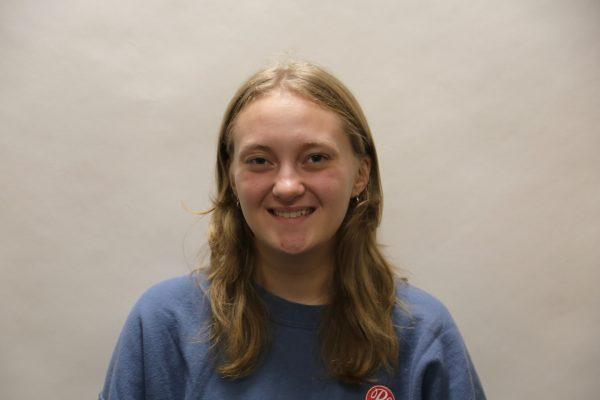During St. Joe’s fourth annual Day of Dialogue Feb. 15, a session titled, “Should Jesuit Universities Parktake in Immersions, Service Trips, or Study Tours?” addressed what presenters called “white savior complex and North American savior complex.”
Led by Tinamarie Stolz, campus minister of immersion programs, Ally Craskey ’23, Alana Simrell ’23, Hana Haile ’24 and Paige Martin ’25, the session focused on St. Joe’s Winter Immersion Program (WIP) and how participants of the program can enjoy their immersion experiences while also acknowledging the privileges that they hold.
WIP is a program run through Campus Ministry, which encourages students to be part of a faith that does justice through interactions and relationships with different communities. WIP has immersion sites in El Salvador and Ecuador, and along the U.S.-Mexico border in El Paso, Texas and Las Cruces, New Mexico.
“It’s all about encountering people, learning about injustices and then going to meet people actually affected by the injustices,” Stolz said.
The one-week immersion during winter break is preceded by a semester of preparation and weekly meetings followed by a period of reflection about these experiences. According to Campus Ministry, “WIP’s primary focus is to walk with you as you discern how to live in solidarity with the materially poor and marginalized, especially upon return to campus.”
Presenters in the session focused specifically on how “the white savior and North American savior complexes” can affect immersion experiences, and how these complexes can be identified and dealt with.
Martin said even those who enter immersion experiences with good intentions can overstep if they go on immersions, service trips and study tours and might feel like they are better than others, or that their work is more important than the communities that they immerse in.
“The white savior complex is people who are white, who have a perceived idea that somehow there is an innate superiority in that,” Martin said. “[It] often intertwines with the North American savior complex, where people who are from Canada, the U.S. or just the western world in general, believe that their way of life is superior to others.”
According to Haile, members of WIP are taught to see people as people, rather than the experiences and trauma they may have lived through.
“We don’t want to frame people’s lives in the sense of just the trauma,” Haile said. “People are just so much more than what they’ve been through.”
These complexes, according to Stolz, are often subtle rather than outright, but still cause the same damage to those they are applied to. And in many cases, the people who have these complexes genuinely feel as if their way of life is superior and seek to help others as a result, even if it is not the reality of the situation.
“I think learning is super important. So it’s learning about it, it’s seeing it, it’s encountering people affected by it, it’s about building friends and relationships,” Stolz said.
Martin said participants go into programs with good intentions to help or fix something in a community, but that participants should not decide what is best for the community they engage with.
“We have to ask the community what they want to see change,” Martin said. “I think that’s a big distinction between going in with that background of the North American savior complex and the white savior complex, versus going in without it. We might actually do more damage than good going into these trips.”
WIP and other immersion programs give people the opportunity to expand their community and learn from and embrace others, despite other factors, Haile said.
“[It’s] an opportunity to build community, an opportunity to humanize those in these marginalized communities,” Haile said.
Alec Mettin ’24, who has been on a study tour to Cuba and went on WIP to El Paso, Texas said he attended the session to evaluate his own participation in programs and trips he has taken in the past.
“This was a conversation I felt was worth having and was worth the introspection for myself,” Mettin said. “Just to evaluate my















































